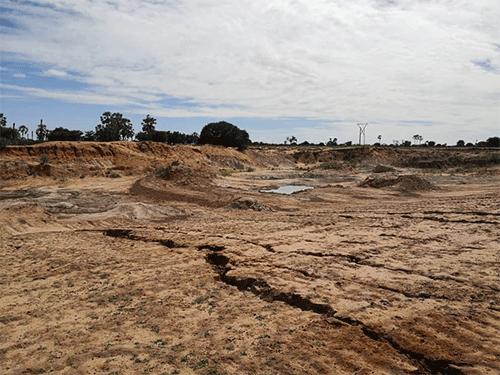Environment and tourism spokesperson Romeo Muyunda says illegal sand mining, which leads to land degradation that poses threat to humans and animals, remains a challenge in northern Namibia.
He, however, said the ministry is working closely with traditional authorities and the police to better regulate the mushrooming sand mining activities mostly in the Omusati and Ohangwena regions.
“A total of 15 notifications and 12 compliance orders were issued respectively during the first quarter of the current financial year, and these are related mainly to waste management and sand mining activities,” he noted.
Equally, he said records revealed that in comparing sites inspected and compliance orders and notifications issued, it can be concluded that there is improvement in the implementation of environmental management plans that formed the basis upon which the environmental clearance certificates were issued.
To improve coordination and regulation of these natural resources, Muyunda said the ministry has also developed draft regulations specific to sand mining in terms of Section 56 of the Environmental Management Act.
Other measures will include strict conditions for sand mining applicants, such as giving assurance of the capability to rehabilitate a borrow pit.
Recently, a public hearing was held, which was necessitated due to a dispute over the suspension of sand mining activities at Ondando C.
This resulted after environmental commissioner Timoteus Mufeti suspended sand mining activities at Ondando C village within the Ondonga Traditional Authority.
At the time, Mufeti reasoned the suspension was due to non-compliance with the conditions of the environmental clearance certificate for sand and gravel mining at the Ondando sandpit.
Some of the contraventions reported included the disturbance of the underground water at the site, and the construction and operation of a gravel road to and from the site without appropriate authorisation.
In order to address concerns relating to the regulation of sand mining, the environment ministry has also engaged extensively with traditional authorities, regional councils, local authorities and other stakeholders.
A new sand and gravel mining questionnaire was developed in 2018 as a key step in the application process for the ECC.
This requires all sand mining applications to be approved at all levels of traditional leadership and the regional leadership before final approval by the office of the environmental commissioner.
Furthermore, it has been resolved that sand mining must not take place in crop fields to protect the livelihoods of local farmers and should also not compromise food security.
– anakale@nepc.com.na


